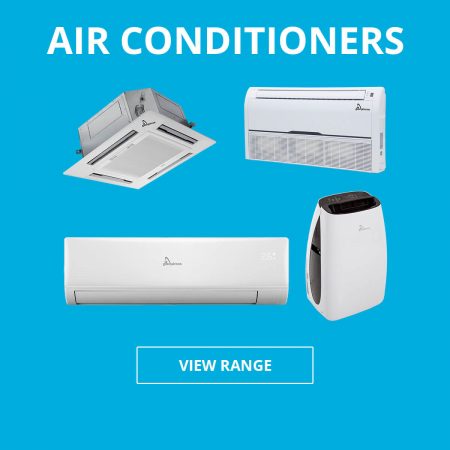During the summer, many people suffer from unbearable heat that goes hand in hand with high humidity. If the air in your house is excessively humid, you will soon notice mold flourishing on the walls and the ceiling. Let alone breathing a dense hot air is a sheer torture! Because you have two interconnected issues — heat and humidity — does it mean that you need two solutions to cool and dehumidify separately? Or maybe there is a solution that kills two birds with one stone?
If you’re lucky to live in a house with a central AC system or a window unit, you probably noticed that the air gets drier when you turn it on. It’s true that these types of conditioners produce a dehumidifying effect, although it’s not their primary job. So if you have one of these, you shouldn’t worry about purchasing a standalone dehumidifier. But what about portable models? Are all portable air conditioners dehumidifiers? Or maybe they have to sacrifice their moisture-absorbing ability for the sake of portability? Let’s learn if dehumidification is within their scope of tasks.
How Portable Air Conditioners Work
To answer the question of whether or not portable conditioners are also dehumidifiers, we first need to take a look at their principle of operation.
Every portable AC device will have three critical components: a fan, compressor, and refrigerant. A fan helps suck the hot air in and pass it down to cold coils. These coils are filled with refrigerant gas that is responsible for the cooling effect. While the air gets colder, the moisture present in it settles on the coils as frost or water drops. Have you ever noticed how a glass of icy water gets sweaty on a hot day? Something like that happens within an air conditioner.
After a portable AC extracted moisture out of cooling air, it gives the air off into a room. At the same time, water condensate along with exhaust heat produced by the system as it works is discharged via a hose through the window or drainage system.
So what we just learned about portable air conditioners suggests that they really are dehumidifiers. Although dehumidification isn’t their primary goal, the way they operate allows removing moisture out of the air and vent it out outside the house. Because moisture doesn’t suck back in, the air in the room gets progressively drier the longer an air conditioner operates.
Are Portable ACs Better Than Dehumidifiers Then?
Saying that portable air conditioners are better than their dehumidifying counterparts isn’t exactly correct. Although both devices work in a pretty similar way — they remove moisture from the air through rapid cooling and occurrence of condensation — the scenarios of their applications are slightly different.
Air conditioners cool the air. As they operate, they produce some heat but they make sure to vent it out outside so that the temperature inside a room drops down faster. Therefore, they become lifesavers in the summer.
Dehumidifiers, since they have cold coils, also cool the air to some extent. However, their design does not envision the removal of hot air generated during their operation, so they are not able to significantly lower the ambient temperature. They actually raise the temperature a little bit because hot air flows into the room. You may experience a slight cooling effect because dry air feels cooler than hot air, but a thermostat will not detect any notable temperature shifts.
Because dehumidifiers warm more than they cool, you can use them during the cold season. Although indoor air is usually not so humid in winter, poor ventilation in the kitchen or bathroom will undoubtedly lead to condensation. Unless you’re a fan of fungus, a dehumidifier will come very in handy.
The bottom line is that you can use a portable air conditioner as a dehumidifier. On the other hand, you can’t utilize a dehumidifier as an air conditioner unless you’d like to make the air a tad warmer — but yes, less humid.
